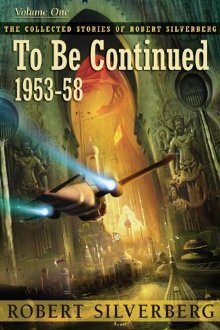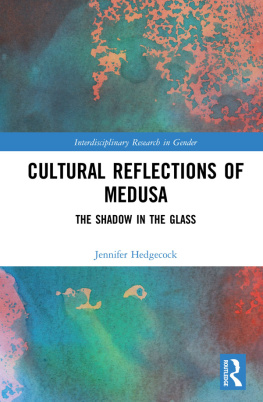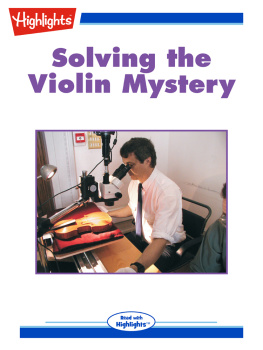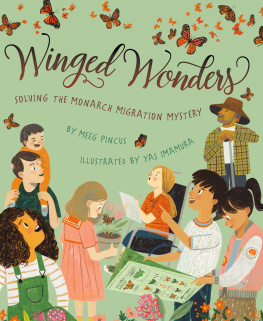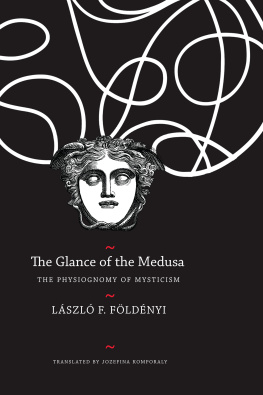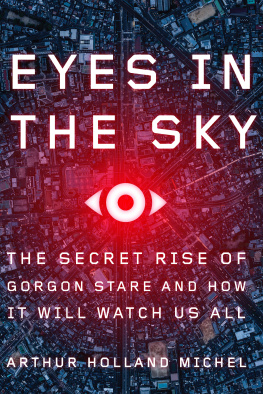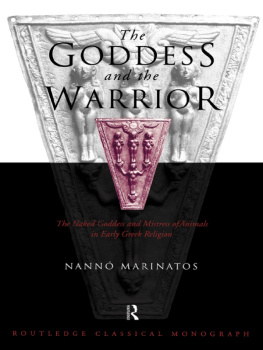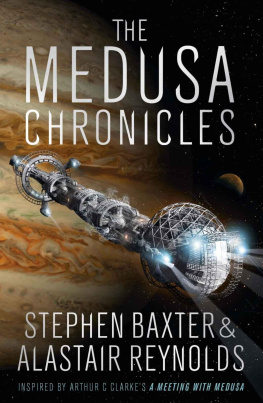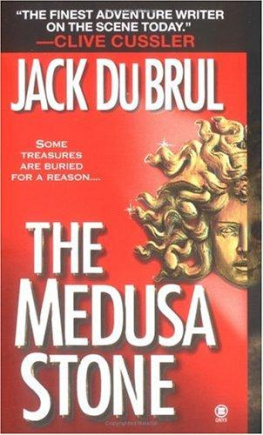Gorgo. - Medusa: solving the mystery of the Gorgon
Here you can read online Gorgo. - Medusa: solving the mystery of the Gorgon full text of the book (entire story) in english for free. Download pdf and epub, get meaning, cover and reviews about this ebook. City: Oxford, year: 2008;2000, publisher: Oxford University Press, genre: Detective and thriller. Description of the work, (preface) as well as reviews are available. Best literature library LitArk.com created for fans of good reading and offers a wide selection of genres:
Romance novel
Science fiction
Adventure
Detective
Science
History
Home and family
Prose
Art
Politics
Computer
Non-fiction
Religion
Business
Children
Humor
Choose a favorite category and find really read worthwhile books. Enjoy immersion in the world of imagination, feel the emotions of the characters or learn something new for yourself, make an fascinating discovery.

- Book:Medusa: solving the mystery of the Gorgon
- Author:
- Publisher:Oxford University Press
- Genre:
- Year:2008;2000
- City:Oxford
- Rating:5 / 5
- Favourites:Add to favourites
- Your mark:
- 100
- 1
- 2
- 3
- 4
- 5
Medusa: solving the mystery of the Gorgon: summary, description and annotation
We offer to read an annotation, description, summary or preface (depends on what the author of the book "Medusa: solving the mystery of the Gorgon" wrote himself). If you haven't found the necessary information about the book — write in the comments, we will try to find it.
Gorgo.: author's other books
Who wrote Medusa: solving the mystery of the Gorgon? Find out the surname, the name of the author of the book and a list of all author's works by series.
Medusa: solving the mystery of the Gorgon — read online for free the complete book (whole text) full work
Below is the text of the book, divided by pages. System saving the place of the last page read, allows you to conveniently read the book "Medusa: solving the mystery of the Gorgon" online for free, without having to search again every time where you left off. Put a bookmark, and you can go to the page where you finished reading at any time.
Font size:
Interval:
Bookmark:
MEDUSA
SOLVING THE MYSTERY OF THE GORGON
Stephen R. Wilk


Oxford New York
Athens Auckland Bangkok Bogot Buenos Aires Calcutta
Cape Town Chennai Dar es Salaam Delhi Florence Hong Kong Istanbul
Karachi Kuala Lumpur Madrid Melbourne Mexico City Mumbai
Nairobi Paris So Paulo Singapore Taipei Tokyo Toronto Warsaw
and associated companies in
Berlin Ibadan
Copyright 2000 by Stephen R. Wilk
Published by Oxford University Press, Inc.
198 Madison Avenue, New York, New York 10016
Oxford is a registered trademark of Oxford University Press
All rights reserved. No part of this publication may be reproduced,
stored in a retrieval system, or transmitted, in any form or by any means,
electronic, mechanical, photocopying, recording, or otherwise,
without the prior permission of Oxford University Press.
Library of Congress Cataloging-in-Publication Data
Wilk, Stephen R.
Medusa : solving the mystery of the gorgon / Stephen R. Wilk.
p. cm.
Includes bibliographical references and index.
ISBN 978-0-19-534131-7
1. Medusa (Greek mythology). 1. Title.
BL820.M38W55 1999
292.13dc21 99-10739
The Muse as Medusa 1971 by May Sarton, from Collected Poems, 19301993
was reprinted by permission of W. W. Norton & Company, Inc.
Eve Meets Medusa from Gardens of Eden: Poems by Michelene Wandor
(New York: Random-Century, 1990) was reprinted by permission from the publisher.
Printed in the United States of America
on acid-free paper
IT IS IRONIC THAT, although writing a book is a phenomenally antisocial activity, the result of hours in the library or hunched over a computer keyboard, the author still finds himself indebted to a huge number of people. Part of the reward you get for all the effort of putting together a book like this is that it gives you a legitimate excuse for elbowing your way into the affairs of people you would otherwise never get to meet. The oddball trajectory of this book shows just how wide a range of people and specialties you can encounter. Classical scholars and museum curators, forensic scientists and doctors, animal behaviorists and architects, motion picture aficionados, astronomers, entomologists, artists, and theologians. It has been an interesting journey. I am immensely grateful to those who talked with me, suggested ideas, offered articles or illustrations, and expressed curiosity about my theses. My including their names in this list does not mean that they agree with any or all of my ideas. Some expressed skepticism about the possibilities I raised, which is as it should be.
First and foremost, I want to thank my wife, Jill Renee Silvester, who put up with my frequent disappearances into the den with a stack of books, not to mention my trips to libraries and conventions. She was also my best critic, pronouncing the first draft of this book as dry as a thesis. No one will read it, she declared. Suitably chastened, I rewrote it completely, casting it in a more familiar style. You have her to thank that this book is not an involved recitation of facts, heavily larded with footnotes.
I also thank and apologize to Carolyn Renee, my daughter, who arrived in the middle of rewrites. I have to thank my parents, Joseph and Mary Wilk, for too many things to mention. And I thank my sister, Cynthia Wilk, for many small services and for filling my house with gargoyles. And I note my debt to Maggie and Midnight, our cats, who kept me company in my self-imposed exile and who served as test subjects in my private researches on the usefulness of gargoyles and daruma dolls.
I especially want to thank Professor Jerome Y. Lettvin of the Massachusetts Institute of Technology. It was his 1978 article The Gorgons Eye that propelled me into what I thought would be a short article of my own, but which turned into this book. After I had started writing I looked him up and spent many hours discussing his own work on octopodes. He critiqued the relevant portions of through 7 so that I did not misrepresent him. Again, I emphasize that any mistakes and all harebrained speculation is due to me.
I owe thanks to Professor Emily Erwin Culpepper of Redwood College, who allowed me to quote generously from her article and her thesis. Professor Sarolta Takacs of the Classics Department at Harvard University offered much of her valuable time to discuss some of my ideas with me and to suggest further directions for research.
Id like to thank my employer, Stephen D. Fantone, president of Optikos Corporation in Cambridge, Massachusetts. He allowed me to use the facilities at Optikos for printing out my manuscript and put me in touch with some useful resources.
Ron and Ann Tanguay both gave assistance. Ron published the first article I wrote on the astronomical significance of the myth of Medusa in his magazine, Double Star Observer, and answered some unusual questions. Ann was able to help with library issues.
David Mruz, former editor of journals on animation art, was able to get me information on the elusive film Metamorphoses, going so far as to locate a video copy. He also mailed me a copy of the Twilight Zone magazine with the Gorgon story.
Professor Ronald Prokopy of the University of Massachusetts at Amherst and Professor Michael J. Conover of Utah State University both sent me copies of their articles on bird deterrents.
Id like to thank Professors Mary Valentis and Anne Devane of the State University of New York at Albany for letting me quote from their book Female Rage. Professor Jane Caputi of the University of New Mexico discussed her book Gossips, Gorgons, and Crones: The Fates of the Earth over the telephone with me.
Elizabeth Harding discussed Kali with me and sent me literature on her organization in California. Kali worship is alive and well, in the United States as well as in India. I hope my theories in this book do not offend devotees. It seems to me that my interpretations are not inconsistent with ideas expressed by believers, but I am on the outside looking in.
I owe great thanks to Janet Mattei and the American Association of Variable Stars Observers (AAVSO) in Cambridge, Massachusetts. Not only did they give me a forum to express my astronomical theories at their annual meeting, but they published my article in their journal. They also let me have free run of their extensive library. AAVSO is always looking for members. If you are intrigued by the idea of observing variable stars, write to them at 25 Birch St., Cambridge, MA 02138 USA; (617) 354-0484.
I want to thank Professor James T. Costa of Western Carolina University for his help in obtaining the illustration on sawworm larvae and for telephone discussions.
Professor Owen Gingerich of the Harvard-Smithsonian Center for Astrophysics provided the illustration from al-Sufi. His name is legendary, and I thank him for loaning me his original photograph. I note that he was somewhat dubious of my thesis but was interested enough to wish to see the book. I hope that I have not made any major errors in the astronomical chapters.
Doctor William H. Hartmann of the American Board of Pathology helped me to obtain information and put me in touch with other people whom I must acknowledge without naming. I understand that their profession attracts the morbid, whose attentions they do not want to encourage.
I want to thank Donald Trombino of the Museum of Arts and Sciences in Deltona, Florida, for providing the illustration of Rahu. My thanks to Hilary Mitchell for the astronomical illustrations.
Next pageFont size:
Interval:
Bookmark:
Similar books «Medusa: solving the mystery of the Gorgon»
Look at similar books to Medusa: solving the mystery of the Gorgon. We have selected literature similar in name and meaning in the hope of providing readers with more options to find new, interesting, not yet read works.
Discussion, reviews of the book Medusa: solving the mystery of the Gorgon and just readers' own opinions. Leave your comments, write what you think about the work, its meaning or the main characters. Specify what exactly you liked and what you didn't like, and why you think so.

